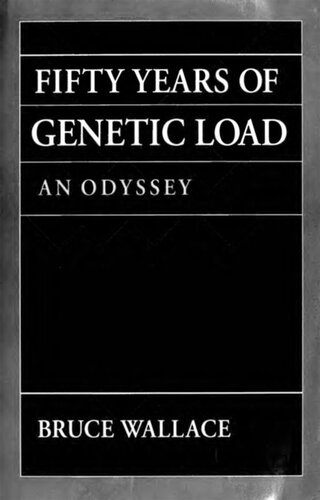

Most ebook files are in PDF format, so you can easily read them using various software such as Foxit Reader or directly on the Google Chrome browser.
Some ebook files are released by publishers in other formats such as .awz, .mobi, .epub, .fb2, etc. You may need to install specific software to read these formats on mobile/PC, such as Calibre.
Please read the tutorial at this link: https://ebookbell.com/faq
We offer FREE conversion to the popular formats you request; however, this may take some time. Therefore, right after payment, please email us, and we will try to provide the service as quickly as possible.
For some exceptional file formats or broken links (if any), please refrain from opening any disputes. Instead, email us first, and we will try to assist within a maximum of 6 hours.
EbookBell Team

4.1
30 reviewsIn this personal history, one of the pioneers in population genetics recounts the evolution of his ideas about the effects of genetic variability on a population. Tracing the results of successive experiments over the years, it is, like the author's career, highly original.
Bruce Wallace's book is the odyssey of a man whose concern has always been the posing and answering of research questions. Its span extends from a simple attempt to verify some mathematical calculations to a statement of what he considers to be a definitive experiment bearing on current neutralist-selectionist disagreements. "The account proceeds," he writes, "from my Cornell University acceptance that a load (genetic or phenotypic) harms a population, to a later belief that it has little or no bearing on a population's well-being, and, then, to my present feeling that a phenotypic load (which may or may not have a genetic basis) provides the means for culling of excess individuals, thus avoiding overcrowding and increasing the probability that a population will persist through time."
A solid contribution to our understanding of modern population genetics, this book will be of interest to evolutionary and population biologists, ecologists, and historians and philosophers of science.